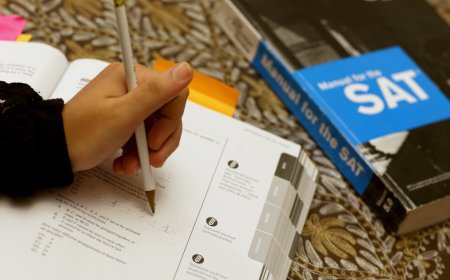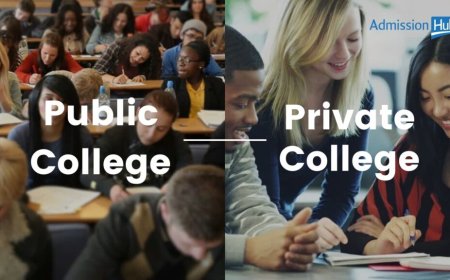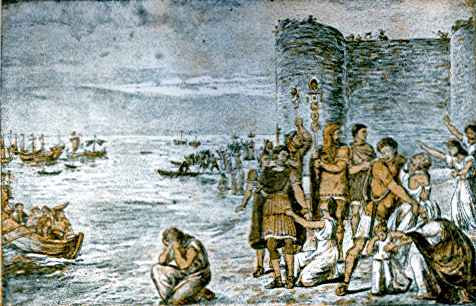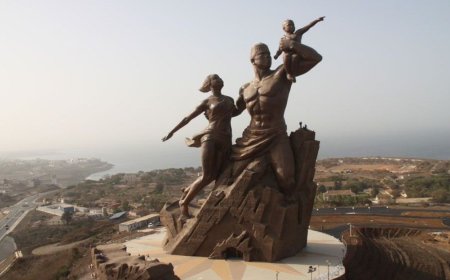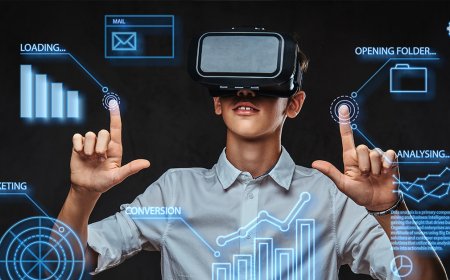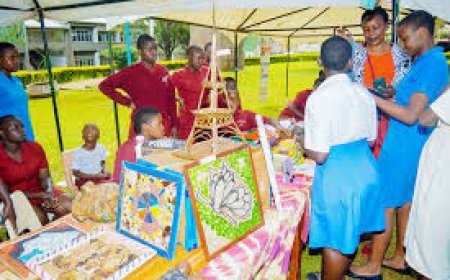Lessons from Indias Experiential Learning Programs
India’s experiential learning initiatives emphasize learning by doing, using hands-on tasks and real-world scenarios to deepen student understanding. These programs underscore the value of active participation, help improve knowledge retention and skill-building, and create a more engaging and relevant learning environment.
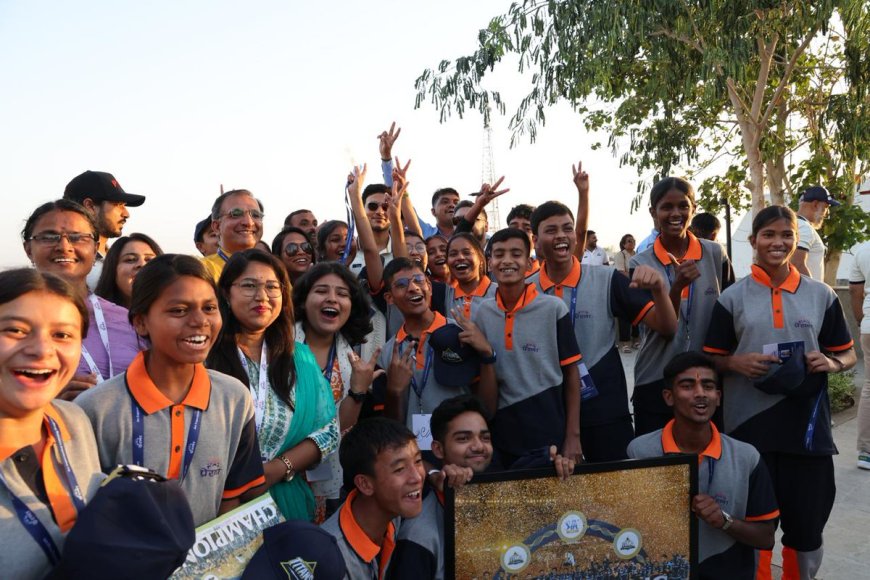
Lessons from India's Experiential Learning Programs refer to the evolving education- al practices within India that emphasize hands-on, practical experiences as integral components of learning. Rooted in the educational philosophies of early 20th-century thinkers like John Dewey, who advocated for interactive and critical thinking-focused education, experiential learning has gained significant traction in India, particularly with the introduction of the National Education Policy (NEP) 2020. This policy seeks to create a more holistic and inclusive educational framework that prioritizes critical thinking, inquiry-based learning, and vocational education, aiming to bridge the gap between theoretical knowledge and real-world application in an increasingly dynamic job market.[1][2][3]
The significance of these programs is underscored by their diverse methodologies, which include project-based learning, service learning, internships, and outdoor education. Schools and institutions across India are actively implementing these approaches to foster essential skills such as collaboration, problem-solving, and social responsibility among students.[4][5][6] Notable initiatives, like the Indiahikes School of Outdoor Learning (InSOUL) and the Prerana program, exemplify how experiential learning not only enhances student engagement but also prepares them for the complexities of modern society by instilling values of leadership and community service.[7][8]
Despite the promising outcomes, the implementation of experiential learning faces various challenges, including logistical constraints, resistance to change, and the
As India continues to reform its educational landscape, the lessons learned from these experiential learning programs provide valuable insights into the transforma- tive potential of education that is grounded in practical experience. By integrating experiential learning into the national curriculum, India aims to cultivate a generation of learners who are not only academically proficient but also equipped with the skills and values necessary to thrive in a complex and interconnected world.[11][12]
Historical Background
India's educational system has undergone significant transformations throughout its history, with a notable shift towards experiential learning in recent decades. The roots of experiential learning in India can be traced back to early 20th-century educators like John Dewey, who advocated for education as an interactive process that emphasizes critical thinking and real-world applications of knowledge[1]. This philosophy aligns with traditional Indian education, which often emphasized holistic learning through practical experiences.
With the implementation of the National Education Policy (NEP) 2020, a more struc- tured approach to experiential learning has been established. The policy promotes a 5+3+3+4 structure, encouraging foundational literacy and numeracy from early child- hood and integrating vocational education from Grade 6 onwards. This framework aims to create a more inclusive and equitable educational landscape, with a focus on critical thinking, inquiry-based learning, and a multidisciplinary approach[2][3].
Institutions across India are increasingly embracing this innovative teaching method, which transcends rote memorization by engaging students in practical, hands-on ex- periences. Schools like the Northstar School in Rajkot are pioneering this movement by adopting a curriculum that fosters curiosity-driven learning and emphasizes the importance of independent inquiry[4]. The trend reflects a broader recognition of the need to equip students with the skills necessary for a rapidly evolving job market, bridging the gap between academic learning and practical proficiency[3].
As India continues to navigate its educational reforms, the historical emphasis on experiential learning is being revitalized to better prepare students for lifelong learn- ing and future challenges, ensuring that the legacies of its diverse cultural heritage remain integral to modern education[13].
Types of Experiential Learning Programs
Experiential learning programs encompass a variety of methodologies designed to engage students actively and deepen their understanding through hands-on expe- riences. These programs can be implemented across various educational settings,
Project-Based Learning
Project-Based Learning (PBL) involves students working on extended projects that require inquiry, problem-solving, and collaboration. This approach encourages stu- dents to delve deeply into a subject matter, applying theoretical knowledge in
real-world contexts while developing critical thinking and teamwork skills. PBL fosters autonomy and equips students with the ability to address real-world issues[5][14].
Service Learning
Service learning integrates community service with classroom instruction, allowing students to engage in activities that meet community needs while reinforcing their academic learning. This type of experiential learning nurtures civic responsibility, empathy, and social awareness, as students apply their knowledge to make a positive impact in their communities[1][6].
Interactive Simulations and Role-Playing
One of the most effective applications of experiential learning is through interactive simulations and role-playing exercises. These immersive activities allow students to assume different roles and navigate complex scenarios, thereby experiencing the outcomes of their decisions firsthand. This method not only enhances engagement but also builds emotional connections to the subject matter, enabling learners to grasp complex concepts more effectively[15][1].
Internships and Apprenticeships
At the secondary and higher education levels, internships and apprenticeships pro- vide students with hands-on work experiences in real-world settings. These programs prepare students for future careers by allowing them to integrate academic knowl- edge with practical skills, fostering adaptability and professional development[5][6].
Field Trips and Outdoor Education
Field trips to museums, factories, and natural reserves enhance learning by providing students with firsthand experiences beyond the classroom. Similarly, outdoor educa- tion utilizes diverse landscapes for learning, instilling environmental stewardship and a deeper connection to nature. Both approaches emphasize experiential engagement and real-world applications of academic concepts[16][3].
Collaborative Learning Activities
Collaborative learning techniques, such as group discussions and cooperative projects, emphasize peer-to-peer interaction and support. By working together, students develop communication skills, learn from diverse perspectives, and foster a sense of community within the classroom, enhancing the overall learning experience- [17][4].
Technology-Enhanced Learning
The integration of technology into experiential learning environments expands ac- cess to diverse resources and experiences. Digital simulations and virtual field trips provide experiential opportunities, especially when physical resources may be limited. This approach ensures that experiential learning remains inclusive and accessible, catering to different learning styles and preferences[6][16].
Notable Programs and Initiatives
Indiahikes School of Outdoor Learning (InSOUL)
Indiahikes School of Outdoor Learning (InSOUL) offers immersive outdoor education programs that blend trekking with targeted learning objectives. Their initiatives focus on developing valuable life and leadership skills among students, helping them reconnect with nature while fostering personal growth[7][18]. Since its inception, InSOUL has impacted over 10,000 students nationwide through its adventure-based learning experiences[18].
These programs illustrate the significant strides being made in India's educational landscape through experiential learning, contributing to skill development, commu- nity engagement, and a more impactful educational experience for students.
Prerana Program
In early 2024, the Ministry of Education launched the Prerana program, focusing on experiential and value-based learning for students in classes IX to XII. This week-long residential program combines cutting-edge technology with innovative learning experiences[8].
National Service Scheme (NSS)
One prominent initiative in India is the National Service Scheme (NSS), a government program that actively involves students in community service. Participants engage in various activities such as health camps, environmental projects, and educational outreach, allowing them to gain practical experience while positively impacting their communities[6].
Indian Institutes of Technology (IITs)
The Indian Institutes of Technology (IITs) have also embraced experiential learning by incorporating internships, research projects, and industry partnerships into their educational framework. This approach enables students to apply theoretical knowledge to real-world situations, enhancing their academic experience and preparing them for future careers[6].
Azim Premji Foundation’s Field Practice Program
The Azim Premji Foundation has introduced the Field Practice Program, which immerses educators in rural school environments. This program helps teachers understand and address challenges within rural education systems, fostering the development of contextually relevant teaching practices[5].
SWAYAM Plus Platform
Launched in February 2024, the SWAYAM Plus platform aims to expand existing online course offerings by aligning them with industry needs to enhance learners' employability. It provides access to a diverse range of courses across sectors such as Manufacturing, Energy, Computer Science, IT/ITES, Healthcare, and Social Science, with features like multilingual content and AI-enabled guidance[8].
Success Stories and Impact
Experiential learning in India has led to numerous success stories, showcasing its transformative influence on learners and communities. These initiatives have not only fostered skill development and innovation but have also catalyzed social change across various sectors.
Notable Initiatives
One of the pioneering examples of experiential learning is the "Honey Bee Network," established by Prof. Anil Gupta. This initiative promotes grassroots innovation by con- necting traditional knowledge holders, artisans, and inventors with opportunities for collaboration and recognition. Through experiential learning and community engage- ment, the Honey Bee Network has successfully documented indigenous knowledge, leading to enhanced entrepreneurial endeavors among local communities[5].
Educational Institutions Impact
Experiential Learning Programs (ELPs) have been notably successful in agricultural and fisheries education. For instance, Dr. YSR Horticultural University in Andhra Pradesh has focused on skill development and entrepreneurship. Students engage in the production of quality planting materials and value-added products, as well as poly-house cultivation of high-value crops such as tomatoes and hybrid tea roses, which are sold in local markets[19]. Similarly, the College of Fisheries in Imphal has empowered students with practical knowledge in fish breeding and product sales, enhancing their employability and industry readiness[19].
Community Engagement and Team Building
Experiential learning also fosters community engagement and teamwork. A recent trek organized for Grade 8 students from The Foundation School exemplified this aspect. Students not only explored the outdoors but also demonstrated leadership by guiding peers and taking on responsibilities in caring for the environment. The enthusiasm and teamwork exhibited during this event highlighted the positive impact of experiential learning on students' development and community spirit[7].
Research and Methodology
Research conducted on the impact of experiential learning has revealed significant positive outcomes. A mixed-methods approach was utilized to evaluate learning out- comes, combining quantitative surveys with qualitative focus group discussions. This comprehensive methodology confirmed that when experiential learning processes are implemented effectively, desired learning outcomes are highly achievable[20][- 21].
Pedagogical Approaches
Experiential Learning in the Indian Educational System
The Indian educational system has been criticized for its focus on theoretical knowl- edge at the expense of practical applications. Many students possess relevant theoretical knowledge but struggle to connect it with real-world applications in organi- zations. To address this gap, experiential learning is proposed as a key pedagogical approach. This method encourages students to actively participate in learning by engaging with practical challenges and developing social values, thereby enhancing their ability to contribute meaningfully within organizations[22][20].
Experiential learning involves hands-on, immersive experiences that allow students to apply theoretical knowledge in practical settings. This pedagogical approach not only helps in bridging the divide between academic settings and real workplace environments but also equips students with essential skills such as negotiation, conflict resolution, and critical thinking[20][19]. Furthermore, it fosters an environment of collaboration among students and promotes leadership skills as they learn from their experiences through reflection and feedback[19].
Global Classroom and Engaging Pedagogy
An emerging trend in education is the implementation of the global classroom, which leverages technology to create collaborative learning environments across geographical boundaries. Research evaluating this approach has utilized frameworks like Kearsley and Shneiderman’s engagement theory and Kolb’s experiential learning theory to assess its impact on student engagement[23]. The findings indicate a com- plex relationship between student engagement and experiential learning, suggesting that principles of engagement can vary significantly in their effectiveness depending on the context and purpose of learning activities.
Challenges in Implementing New Methodologies
Despite the growing recognition of experiential learning's benefits, the transition to this approach faces significant challenges. Implementing critical thinking and expe- riential learning requires a fundamental shift in teaching methodologies, curriculum design, and assessment practices. There is a pressing need for teacher training to adopt these new pedagogical approaches and create engaging learning environ- ments[9]. Additionally, existing high-stakes exam pressures and societal expectations for academic performance may hinder the effective adoption of experiential learning methods, necessitating a reevaluation of assessment strategies in educational insti- tutions[9].
Theoretical Foundations of Experiential Learning
The theory of experiential learning, heavily influenced by the works of philosophers and educational theorists such as John Dewey, emphasizes the importance of active participation and reflection in the learning process. Dewey argued that learning is most effective when it is rooted in meaningful experiences, leading to deeper under- standing and personal growth. Building on this foundation, David Kolb developed a cyclical model of experiential learning consisting of four stages: concrete experience, reflective observation, abstract conceptualization, and active experimentation[24][5]. This model highlights the process of learning through experience and the necessity of reflection to reinforce and enhance future learning endeavors.
Challenges and Limitations
Logistical Challenges
Experiential learning programs often face significant logistical challenges that can hinder their implementation and effectiveness. Finding suitable experiences that align with learning objectives, are accessible to learners, and fit within the constraints of educational programs can be particularly difficult. This process frequently demands substantial time and effort, which may involve negotiations with external partners[24]. Additionally, coordinating with these partners involves managing relationships and logistics, which can further complicate the execution of experiential learning activi- ties[5].
Organizational Constraints
Educational institutions may also encounter organizational constraints when trying to integrate experiential learning into their curricula. Coordinating field trips, internships, or other practical experiences can be challenging, especially in settings with limited resources or access to external learning environments[5]. Furthermore, educators often struggle to balance experiential learning with academic standards and content requirements, making it challenging to find an effective equilibrium between tradition- al and experiential teaching methods[5].
Access and Inclusivity
Ensuring equal access to experiential learning opportunities for all students poses another significant challenge. This includes considerations for students from di- verse backgrounds and those with disabilities. Designing inclusive and accessible experiences requires careful planning and a commitment to equity, which can be resource-intensive[5]. Without these considerations, certain groups may be excluded from valuable learning experiences.
Resistance to Change
Resistance from educators and institutions can also impede the adoption of experien- tial learning methods. Some may prefer traditional teaching styles due to familiarity or may lack understanding of the benefits of experiential approaches[5]. This resistance can create barriers to innovative pedagogical practices that have the potential to enhance student engagement and learning outcomes.
Reflection and Guidance
Effective reflection and guidance are essential components of experiential learning, yet they may require additional training and support for educators. Facilitating mean- ingful reflection allows learners to extract valuable insights from their experiences, but without proper guidance, this aspect can be neglected, diminishing the overall impact of the experiential learning process[5].
Assessment Challenges
Assessing the outcomes of experiential learning presents its own set of challenges. Traditional assessment methods often fail to capture the depth of skills acquired through experiential learning, such as critical thinking and problem-solving abili- ties[10]. To address this, innovative assessment strategies must be developed that accurately evaluate real-world skills and learning outcomes, which can necessitate technological integration and resource allocation[10].
Future Directions
Integration of Experiential Learning in Education Policy
The National Education Policy (NEP) 2020 emphasizes the importance of expe- riential learning and aims to transform India's educational landscape by fostering practical skills, critical thinking, and problem-solving abilities among learners[11][25]. This policy is poised to create an enabling ecosystem for multidisciplinary education, allowing students to select subjects from various fields such as sciences, humanities, and arts. This flexibility will encourage a broader range of academic exploration and personal growth[11][26].
Addressing Implementation Challenges
While the NEP 2020 presents an ambitious framework for reform, successful imple- mentation requires addressing logistical challenges such as careful planning and coordination among various stakeholders, including government bodies, educational institutions, and external partners. Strategies to overcome these challenges may include developing strong relationships with community organizations, offering di- verse experiential opportunities to meet different learning objectives, and providing adequate support for learners throughout their experiences[24][27].
Research and Assessment
Future research will be critical in assessing the impact of experiential learning on student outcomes. Investigating factors such as individual student characteristics and contextual variables could enhance understanding of how to maximize the effectiveness of experiential learning[20]. Longitudinal studies could further illuminate the long-term effects of such educational experiences on students' career trajectories and overall well-being[20][6].
Emphasizing Teacher Development
To realize the goals of the NEP 2020, enhancing teacher education and professional development will be paramount. As educators transition towards implementing ex- periential learning methodologies, they must receive adequate training to effectively facilitate these approaches. This will not only improve the quality of education but also ensure that teachers are equipped to engage students in innovative ways[26][28].
Holistic Curriculum Reform
Ultimately, the NEP 2020 aims to shift from a traditional, content-heavy curriculum to one that fosters inquiry-based, experiential, and discussion-oriented learning[- 12]. This holistic approach will be essential in preparing students to navigate the complexities of the modern world. By integrating diverse subjects and prioritizing skills development, India can cultivate a generation of learners ready to tackle future challenges with confidence and resilience[11][12].
References
[1] : Experiential Learning Model, Methods, Practices & Principles - Outlife
[2] : 6 Ways Examination Reforms are Changing Indian Schools - Varthana
[3] : The 15 Types of Experiential Learning | Sakal NIE
[4] : 5 Indian schools with most unique learning methodologies - EducationWorld
[5] : Experiental Learning Programmes - Soar Excursions
[6] : What is Experiential Learning? All You Need To Know!
[7] : How Experiential Learning Benefits Students and Aligns with NEP 2020
[8] : What is Experiential Learning? Principles, Benefits, Examples
[9] : Why Adoption of Experiential Learning is Growing + Some Examples from India [10]: What is Experiential Learning and Why Is It Important?
[11] : Beyond Textbooks: 10 Innovative Teaching Methods in CBSE Schools - TAIPS
[12] : Indiahikes School of Outdoor Learning
[13] : Experiential learning schools - Indiahikes
[14] : Transformative Education And Skill Development Initiatives In ... - News18
[15] : Experiential Learning Programme (ELP): An Approach towards Develo - Longdom
[16] : Measuring the Impact of Experiential Learning on Learning Outcomes and ...
[17] : Experiential learning assessment: Proven methods to evaluate student ...
[18] : How experiential learning is changing the landscape of ... - Times of India
[19] : Evaluating student engagement and experiential learning in global ... [20]: Paradigm shift from rote learning to critical thinking, experiential ...
[21] : Experiential Learning Challenges: Experiential Learning Explained - Ewance
[22] : Effective strategies for measuring the impact of experiential learning ...
[23] : Recommendations Of Nep-2020 (India) Pursuing Experiential Learning
[24] : NEP 2020: emphasizing experiential learning and inquiry-based ...
[25] : Education Revolution: Advancing Access & Quality in India - IBEF
[26] : Implementation of NEP | Government of India ... - Ministry of Education
[27] : Recent developments and challenges in the Indian education sector
: The Influence of NEP 2020 On School Curriculum: An Analysis Of ...

